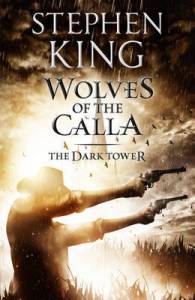Sunday Summary – 25th January 2026
We’re fast approaching the end of January. In terms of reading, the month has flown and this Sunday Summary has plenty of reading progress to share!
Before I get to that though, I always like to start my Sunday Summary by sharing what else I’ve published this week. On my blog, I published my review of As Long as the Lemon Trees Grow and a Shelf Control featuring a psychological thriller coming up on my TBR.
On YouTube, I shared my 2026 Highly Anticipated Reads and another review – this time for my first read of the year, Orbital.
Books Read
Notes on a Nervous Planet

A little discouraged after trying and DNF’ing The Courage to be Disliked last week, I instead chose to pick up a non-fiction self-help by an author I have read before. Thankfully, I already owned a copy of Notes on a Nervous Planet, so picking this up felt like a natural choice.
Unlike my previous experience with The Courage to be Disliked, I really got on with Notes on a Nervous Planet. A book by Matt Haig is a pretty safe bet, and after the disappointment of my first DNF last week, I’m glad I found a self-help I got on with a lot more.
Notes on a Nervous Planet is a really interesting read; it is a collection of short notes grouped into topics about how and why different aspects of our modern world can impact our mental health. The book also includes recommendations on how to minimise those impacts. From everything like the impact of the news and the frequency of its availability to the consequences of modern technology, social media on self-perception, this book has a lot to say in a reasonable, approachable page count.
I actually read Notes on a Nervous Planet pretty quickly, finishing it in just a few days.
The Great Passage

I’m coming to the end of listening to The Great Passage by Shion Miura. I have really enjoyed this audiobook. In particular, I’ve enjoyed reading a book written about and featuring a completely different culture to that I am used to. When discussing my read of this book earlier today, I shared that as someone who reads a lot of western books, I really appreciate the differences that are apparent in terms of work ethic and general cultural norms.
The Great Passage is a very different book to read and that’s why I chose it in audio format. It’s made it a really easy listen, and it’s also a pretty short listen if you’re considering picking up the book this way as well.
As of this Sunday Summary update, I have just forty minutes left of this audiobook! I imagine I’ll wrap this up early next week.
After the Forest

The final book I have read in part this week is After the Forest by Kell Woods. I’m reading this book as a cottagecore fantasy prompt as part of the Cottagecore Fantasy Book Club run by cozysabie.
As of this Sunday Summary update, I have read a third of the book. I’m really enjoying this fairytale spin-off so far. We are all familiar with the fairytale of Hansel and Gretel. After the Woods takes this one step further, but also includes some darker themes, including war, witchcraft, and in some aspects, the treatment and objectification of women.
I deliberately chose this book this month because I like a fairytale retelling. I’m also reliably informed that the author has written another retelling, although sitting outside of the cottagecore sub genre. Nevertheless, depending on how progress continues with After the Woods, I may well pick that second book up of my own accord.
Books Discovered
My 2026 Highly Anticipated Reads video went live this week, so I can now share the books I’ve added as part of that post. Two books in that video were already on my TBR – these are the new ones!
In addition, I’ve added two more this week, Wild Dark Shore after seeing the book on Anna Carolina’s video and The Ocean Would Paint Me Blue, a new release by Zoulfa Katouh later this year. I discovered this book when writing my review of As Long as the Lemon Trees Grow, sadly after filming my 2026 Anticipated Releases video. Otherwise, I’d have included it!
Coming Up…
Some content next week shouldn’t come as a surprise.
On Tuesday, I’ve got a blog tour commitment for a short story collection I still need to read, Dark Chronicles. It’s only 178 pages total. After this post goes live, I’m pausing progress with After the Woods to read this ahead of publishing my review on Tuesday.
On Friday, I’ve got another First Lines Friday post planned. So far, I haven’t got a theme in mind. I’ll probably keep it open so I have full flexibility in what I feature. Hopefully I can still feature something a bit different.
On Saturday, we’ll officially be at the end of January. Late on in the day, I’ll share my monthly wrap-up and recap the reads I kicked off 2026 with. Here’s hoping I get to the end (or close) of my January TBR 🤞🏻
Finally, I’ll be back with a Sunday Summary to recap the week’s progress at the end of next week. Here’s hoping for another successful week!
On YouTube, I’m publishing my top 5 reads of 2025, as well as a review of my second read of January, Beyond Redemption. I hope you can check those out!
Summary
That’s the last of my updates in today’s Sunday Summary.
Tell me about a book you read recently and whether you recommend it or not 😌


Facebook | Twitter | Instagram | Goodreads | Threads| YouTube





























 Top 1% in Epic
Top 1% in Epic